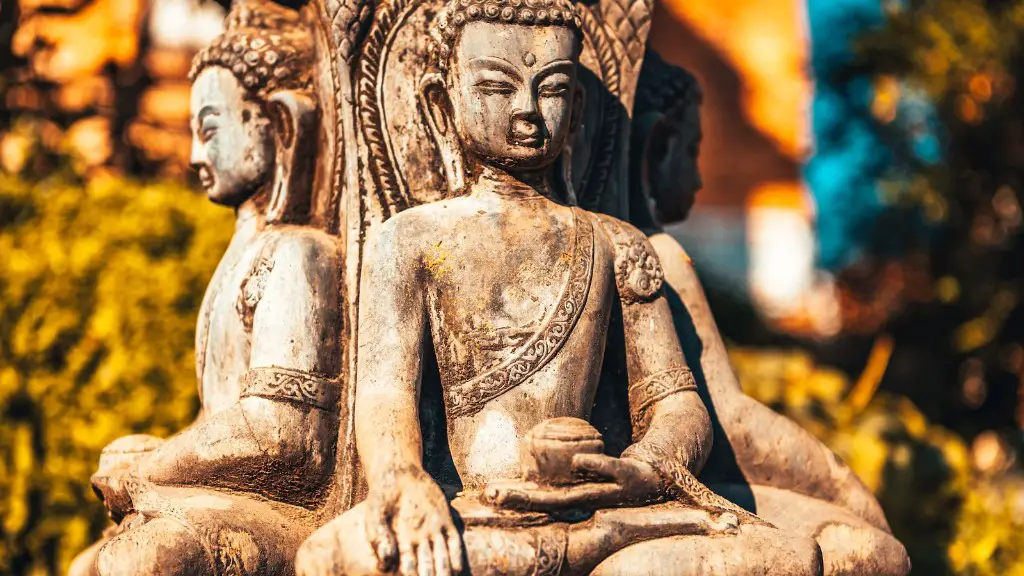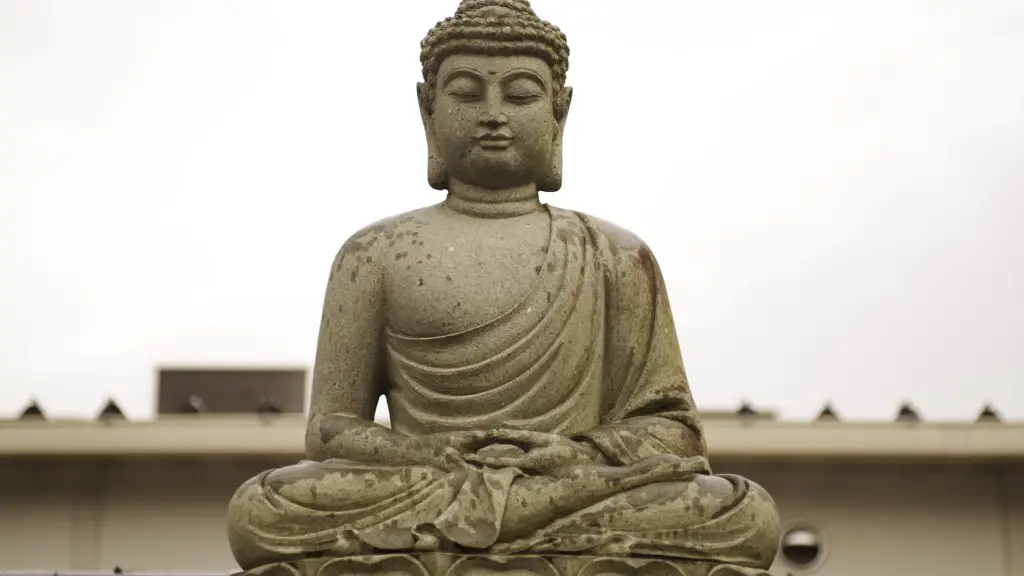History Of Christian Holidays
Christian holidays are an important part of the Christian faith. Christians have been celebrating the birth of Christ, commemorating events from the Bible, and observing special days in the church’s calendar for millennia. Christian holidays typically involve spending time at church, attending religious services, or taking part in special activities. Christian denominations such as the Roman Catholic, Eastern and Oriental Orthodox, and Protestant denominations all recognize and celebrate some version of traditional Christian holidays.
The most important set of Christian holidays are known as the Twelve Great Feasts or “Dodekaorton”. This set of feasts is divided evenly throughout the liturgical calendar, with six of them occurring in the spring and the other six occurring in the fall.
The twelve great feasts are Christmas, Theophany (Epiphany), Annunciation, Transfiguration, Dormition of the Theotokos, Palm Sunday, Ascension of Jesus, Pentecost, Transfiguration of Jesus, Exaltation of the Cross, All Saints’ Day, and The Nativity of the Theotokos. Some denominations or individual congregations may celebrate additional feasts, such as Holy Saturday, the Presentation of Jesus in the Temple, and the Nativity of St. John the Baptist.
Christmas
One of the most important Christian holidays is Christmas, which celebrates the birth of Jesus. It is celebrated on December 25, although it may be observed on other dates in various parts of the world. Christmas is observed with prayers, special services and church programs, the exchange of gifts, time spent with family and friends, decorations, music and other performances, festive meals, and so on.
The Christmas season typically begins with Advent, a four-week period of preparation for the celebration of Christmas. It is traditionally marked with prayer, singing carols, lighting candles, and other devotional acts of worship. During Advent, churches often display a wooden Advent wreath with four candles, representing the coming of Christ.
The popular Christmas carol “Silent Night” was written in 1818, and has since been translated into hundreds of languages. The song tell of Jesus’ birth, and it is often sung in churches and homes alike during the Christmas season. In many countries, the traditional Santa Claus figure is a beloved figure during the Christmas season. The image of Santa Claus has ancient roots in Greek mythology and Christian beliefs, but was popularized by Clement Moore’s poem “A Visit From St. Nicholas” in 1823.
Easter
Easter is the most important Christian holiday of the liturgical year, celebrating the resurrection of Jesus from the dead. It is celebrated on the first Sunday after the first full moon after the vernal equinox, which typically falls between March 21 and April 25. Easter is observed with special church services, feasts, and activities such as egg hunts and decorations.
The most notable Easter image is the Easter bunny, a figure of fertility and new beginnings, has long been associated with the festival of Easter. Baskets of chocolate eggs are a common present given to children on Easter Sunday. Additionally, Easter parades, which are community parades held as part of Easter celebrations, is also popular in many parts of the world. Some parades have special themes such as the Easter parade in Austin, Texas which is held in the traditional Easter bonnet style.
The traditional mottos for Easter are “Alleluia” or “Christ is risen!” In some churches, children will sing a special Easter anthem or Easter hymn during services that morning. One of the best-known Easter hymns is “Jesus Christ is Risen Today”, sometimes referred to as the “Easter Hymn”.
Pentecost
Pentecost is a Christian holiday that celebrates the descent of the Holy Spirit upon the Apostles and other followers of Jesus Christ. It is sometimes called “Whit Sunday” due to the custom of wearing white vestments on that day. It is celebrated the fiftieth day after Easter and ten days after Ascension Thursday. Pentecost is traditionally celebrated with special church services, prayers, and the lighting of special candles.
The Pentecost is a time of joy, but also a time of reflection, when the Christian faithful consider the work of the Holy Spirit in their daily lives. Various hymns, Scripture readings, and special prayers are all part of a Pentecost service. Traditionally, a special Pentecost cake is baked, topped with fifty dough pieces that symbolize the fifty days from Easter to Pentecost.
This holiday is particularly important for the Eastern Orthodox Church and the Roman Catholic Church. For these two traditions, Pentecost is the third most important day in the Christian calendar, after Easter and Christmas.
Ascension Day
Ascension Day, sometimes called Ascension Thursday, is a Christian feast that commemorates the ascension of Jesus Christ into Heaven, as described in the New Testament. It occurs on the fortieth day after Easter and is generally observed with special church services, prayers, and the exchanging of blessings.
Ascension Day is one of the oldest Christian holidays, having been celebrated since the fourth century. In some churches, the traditional hymn “Ascend the Hill of Calvary” is sung. The date of Ascension Day varies across different denominations, and in some cases is celebrated as a part of Pentecost.
As with most Christian holidays, the Advent season and the period leading up to Ascension Day provide special opportunities for prayer, reflection, and contemplation. Many churches will host a special service and meal on Ascension Thursday, along with readings and a homily on the ascension.
Motifs Of Christianity
Ritual practice and celebration are important in Christianity. Rituals and ceremonies serve multiple purposes, such as providing memorable experiences, expressing collective religious beliefs, expressing individual devotion, and creating sacred space.
The most common motifs of Christian holidays are the celebration of Communion, the administering of baptism, and the singing of hymns. Of these, the communal sharing of Communion is the most prominent. Communion is a sacrament wherein participants consume bread and wine as symbolic representations of the body and blood of Christ, participating in a new covenant with God.
Another prominent motif of Christian holidays is the celebration of resurrection, the miraculous event described in the New Testament in which Jesus rose from the dead. This miraculous event marks the commencement of Easter, the central Christian holiday. Churches often mark the occasion with special Easter vigils, candlelight services, and sunrise services.
Symbols Of Christian Holidays
Symbols are an important part of religious observance and holiday celebration. They serve to communicate the spiritual significance of an event, while also providing a way to decorate a space. Various symbols are associated with Christian holidays, such as the Easter egg, the lamb of Easter, the Christmas tree, and the advent wreath.
The Easter egg is an ancient symbol of new life and of faith in Christ’s resurrection. This symbolism is typically portrayed through brightly colored eggs, and is a popular holiday activity in many Christian communities. The paschal (Easter) lamb is another common symbol of Easter and is often seen on children’s clothing or in decorations. It symbolizes Jesus’ sacrifice for our redemption and is often portrayed with a banner and a cross.
The Christmas tree is a symbol of Jesus’s birth and is often decorated with lights, ornaments, stars, and ribbons to mark the season. The advent wreath is a circular wreath with four candles, and is used to mark the four weeks of Advent. It is commonly seen in churches during the Advent season.
Implications Of Christianity
Christianity is practiced by billions of people worldwide, and its religious holidays are observed in various forms throughout the world. These holidays create opportunities for people to come together in joyous celebration, observe rites and rituals, reflect on religious beliefs, and practice acts of worship.
Beyond just providing an occasion to celebrate and worship, Christian holidays also have important implications for society. They can provide opportunities for reconciliation, healing, and social cohesion. Through sharing in celebration, people of different beliefs and backgrounds can come together to bridge divides and understand one another’s perspectives. Holidays provide a chance for society to come together and show compassion, love, and solidarity for one another.
Christian holidays can bring emotional healing as well. In times of grief and mourning, celebrating the significance of Christian holidays can provide hope and comfort. They provide an opportunity to find strength, courage and peace in faith. Through prayer, contemplation, and worship, people often find their way through hardship and despair, and can emerge from the darkness with renewed faith.
Life Lessons Christianity Teaches
Christian holidays are a reminder of the powerful impact that faith can have on individual’s life and on the world. They serve to remind people of the blessings of God, of the joy and fulfillment that can be found in faith, and of the life-changing power of prayer.
The celebration of Christian holidays can also teach us important lessons. These lessons can be seen in the relationships between people, in the wider implications of religious observance, and in the stories of people throughout history that have been changed by faith.
Through the celebration of Christian holidays, people can learn about the importance of humility, forgiveness, kindness, and hope. They can learn the value of unselfish acts of love, generosity, and service. They can learn to accept, appreciate, and celebrate differences, and how to find common ground even in difficult times.
Celebrating Christian Holidays
Christians throughout the world celebrate their faith by observing religious festivals, holidays, and days of devotion. Christian holidays provide opportunities to share faith and enhanced connection, to find peace and courage in difficult times, and to experience joy and celebration.
Whether it’s through attending special services, taking part in devotional activities, or just spending time with family and friends, Christians can use the celebration of Christian holidays to deepen and enrich their faith. Through Christian holiday celebrations, people can come together to express joy and gratitude for all that the faiths offers us, and to learn valuable lessons about faith, hope, and love.


